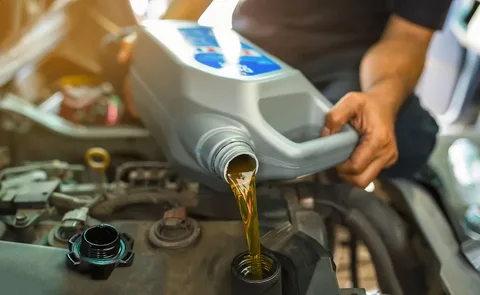Dishwashers are one of the most helpful appliances in modern homes, making daily cleaning quick and convenient. But if you live in an area with hard water, your dishwasher may face unique challenges. Over time, hard water minerals like calcium and magnesium can leave deposits inside the appliance, affecting both its performance and durability. Knowing how hard water affects your dishwasher and ways to prevent damage will help you protect your investment and keep your kitchen running smoothly.
In this blog, we will explain the impact of hard water on dishwashers, the problems it creates, and practical solutions to prevent long-term damage.
Understanding Hard Water and Its Effects
Hard water is water that contains a high level of minerals such as calcium and magnesium. While safe for health, it is harsh on appliances. Every time you run a dishwasher, these minerals settle inside the machine and on your dishes. Over time, they form limescale, which reduces efficiency and creates maintenance problems.
When limescale builds up, the heating element, spray arms, and filters become less effective. This means your dishwasher has to work harder to clean dishes, uses more energy, and may eventually break down earlier than expected.
Signs of Hard Water Damage in Dishwashers
Many homeowners do not realize that their dishwasher problems are related to hard water. There are several clear signs that can help you identify the issue.
Cloudy or Spotty Dishes
If your glasses and plates come out of the dishwasher with cloudy marks or white spots, this is often a sign of mineral deposits left behind by hard water. No matter how much detergent you use, the problem will continue until you treat the water.
Reduced Cleaning Performance
Hard water makes it harder for detergent to dissolve properly, meaning your dishwasher cannot clean as effectively. You may notice greasy dishes, food residue, or a film left on utensils even after a full wash cycle.
Mineral Build-Up Inside the Machine
Over time, you may see chalky white deposits around the spray arms, heating element, or the door of the dishwasher. This build-up reduces water flow and heating efficiency, leading to longer cycles and poor results.
Strange Noises or Malfunctions
As mineral deposits grow inside, moving parts like pumps and spray arms can struggle to work properly. This sometimes causes unusual noises, cycle interruptions, or even complete breakdowns.
Long-Term Problems Caused by Hard Water
Ignoring hard water issues does not just affect the cleanliness of your dishes, it also shortens the life of your dishwasher. Mineral deposits force the machine to work harder, which increases energy use and damages internal components The heating element is especially vulnerable, as limescale reduces its ability to heat water effectively.
Over the years, this extra strain can lead to costly repairs or the need for a replacement much sooner than expected. Regular maintenance and preventive care are essential to protect your dishwasher from these long-term effects.
Ways to Prevent Hard Water Damage
The good news is that you can take steps to protect your dishwasher and keep it working efficiently even if you live in a hard water area. Simple preventive habits, combined with occasional professional maintenance, will make a big difference.
Use Dishwasher Cleaners and Descalers
Running your dishwasher with a cleaner or descaling solution once a month helps dissolve mineral deposits and keeps the interior fresh. Natural solutions like vinegar can also be effective, although commercial cleaners are designed specifically for dishwashers.
Install a Water Softener
A water softener is one of the best long-term solutions for dealing with hard water. By removing excess minerals before the water enters your appliance, it prevents limescale from forming inside the dishwasher. This investment not only protects your dishwasher but also benefits other appliances and plumbing in your home.
Choose the Right Detergent and Rinse Aid
Using detergent that is specially formulated for hard water can improve cleaning performance. Rinse aids also help prevent spots on glassware and reduce mineral deposits. Following manufacturer recommendations ensures you use the right amount of each product.
Clean Filters and Spray Arms Regularly
Hard water can clog filters and spray arms faster than normal. Cleaning them regularly helps maintain water flow and ensures the dishwasher continues to perform at its best. Simple monthly checks can prevent serious problems later.
Professional Care for Hard Water Problems
While home care is important, professional servicing ensures your dishwasher stays in excellent condition. Technicians can deep clean parts that are hard to reach, remove stubborn limescale, and check for early signs of damage.
At JCT Technical Services, we specialize in diagnosing and repairing problems caused by hard water and other common dishwasher issues. With expert tools and knowledge, we provide solutions that not only fix current problems but also prevent future breakdowns.
Final Thoughts
Dishwashers make life easier, but hard water can slowly damage them if preventive steps are not taken. Cloudy dishes, mineral build-up, poor cleaning performance, and unusual noises are all signs that hard water is affecting your appliance. By learning how hard water affects your dishwasher and ways to prevent damage, you can protect your machine, save money on repairs, and enjoy spotless dishes every day.
For homeowners who want long-lasting results, regular care and professional servicing are the best approach. If you are looking for trusted services like Dishwasher Repair and Maintenance, JCT Technical Services is here to provide reliable support and keep your dishwasher running efficiently for years to come.


